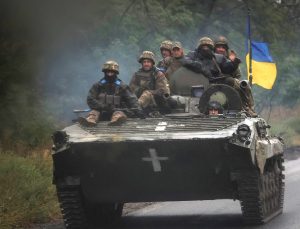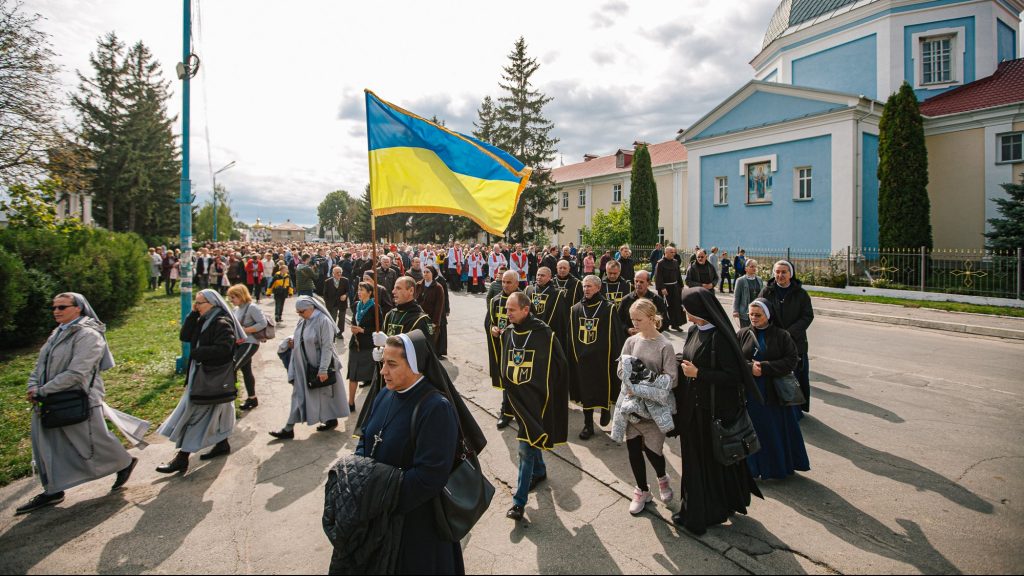People enjoy cheering on a little guy who appears to be holding his own against a bully. Much of the reaction to the Ukrainians’ gutsy effort to repel the brutal Russian invasion of their country has been like that up to now.
But now the situation has been changed radically by Russian President Vladimir Putin’s not-so-veiled threat to use nuclear weapons if the Ukrainian counteroffensive extends to Russian territory — something that in Putin’s mind includes a large chunk of landscape in eastern and southeastern Ukraine, where Russian-speaking separatists have fought the Ukrainian army since 2014.
Putin’s threat to employ “all the means at our disposal” was presumably a reference to tactical weapons meant for battlefield use rather than the nuclear monsters capable of wiping New York or Moscow — or Kyiv — off the map. But the difference hardly matters. For as most people grasp only too well, any use at all of any nuclear weapons would propel the fighting in Ukraine to a higher level of awfulness with terrifying potential.
With good reason, then, many commentators see the present moment as the most dangerous since the Cuban Missile Crisis of 1962, when the U.S. and the Soviet Union came to the brink of nuclear war. The relevant question now — one to which there is no present answer — is what Putin would do if backed into a corner. It would be foolish to suppose his nuclear threat was what he specifically said it wasn’t — a bluff.
Strange as it may seem, the best hope just now may lie in a really bad winter that makes large-scale military maneuvers in eastern Ukraine impossible for several months. With luck, that could lead the Ukrainians to pause their counteroffensive while at the same time encouraging the Russians to hunker down and consider whether anything they might achieve in the future would be worth the price of persisting in this crazy military adventure.

And, hardly least important, it would give the U.S. and the European allies who’ve been backing Ukraine an opportunity to press both Putin and Ukrainian President Zelensky to give serious thought to settling for half a loaf. As Ukraine’s principal supplier of weapons and, it seems, military intelligence, the U.S. has no obligation to provide Ukraine with the means to pursue a dangerous and possibly disastrous future course.
The advocacy of moderation is an approach religious leaders would do well to adopt.
So far, of course, religious voices in both Ukraine and Russia have been raised mostly in patriotic support of their own country’s military. So, for example, Ukrainian Catholic Archbishop Sviatoslav Shevchuk recently praised “our heroic armed forces” for defending the country against “brutal Russian occupation.” And on the other side Orthodox Patriarch Kirill of Moscow — who recently passed up an opportunity to meet Pope Francis in Kazakhstan — trumpets his country’s supposed grit in pursuing its “special historical path” in Ukraine.
And Pope Francis? Earlier in the fighting, at a time when he evidently hoped to play the peacemaking role of mediator, the Holy Father was criticized for not speaking out strongly against Russian aggression. More recently, though, he has taken a tougher line on wartime atrocities. And following Putin’s nuclear threat, he called it “madness” even to speak of the use of nuclear weapons, while deploring the “savagery” that has been directed against the Ukrainian people.
Savagery, madness — these are the bitter fruits of Putin’s war. One can only hope and pray that speedy recognition of that fact will spur efforts to bring this dreadful conflict to a halt sooner rather than later.

